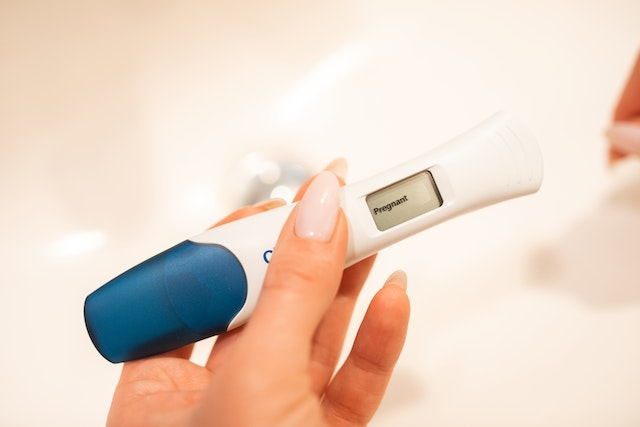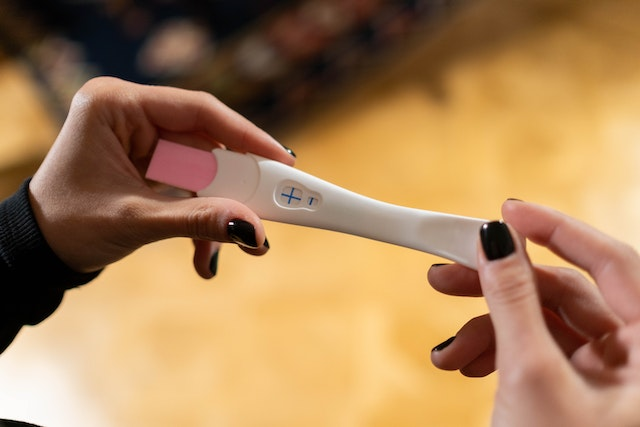
Pregnancy Test 101: How to test pregnancy At Home
Time to read 6 min
Time to read 6 min
A pregnancy test can be one of the best ways to know if you are pregnant or not. You can pick up a pregnancy test at a chemist that you have access to, or buy one online. You should always opt for a reliable brand of pregnancy tests, which can help in accurately assessing successful conception.
In fact, the best ways on how to test pregnancy at home are through direct measurement of hCG in your body. This can be done easily with an a home pregnancy test which you can buy online. You can take a pregnancy test and it will show if you are pregnant through the strip reader.
Home pregnancy tests are also highly reliable as the test in the key of the package measures human chorionic gonadotrophin (hCG), which develops around 6 days after fertilisation. A pregnancy test is therefore, one of the most reliable ways of knowing whether you are pregnant.
Couples that are also trying to start a family can use the pregnancy test results to understand whether they are pregnant. A positive pregnancy test can denote successful fertilization, which can be important to know when planning for a baby. That's why taking a pregnancy test at home is essential when planning.
A pregnancy test works by measuring the levels of hCG in the body through the urine. There is a long stick that has a designated area for urine sample depositing, as well as a reader to provide accurate measurements of the hormone.
By letting the strip interact with the urine directly for a few minutes, the pregnancy test kit can show whether you are pregnant or not. You can also opt for multiple tests to be completely sure that you are pregnant when planning for a baby.
The first step in checking whether you are pregnant at home is to buy a pregnancy test. There are a few important factors that you should remember when buying a pregnancy test at home. You should always buy from a verified chemist and a opt for a high quality pregnancy test.
You should also check if the pregnancy test is working, via its expiry and manufacturing date. You shouldn't test on a pregnancy kit that is damaged or is in an old condition. You should also ensure that the contents of the kit are protected and sealed.
You should open the pregnancy testing kit and remove the contents of the package. There should be a stick with the kit embedded in it, along with a reservoir, and documentation. You can check if the stick in the neutral position is working correctly.
You can pee into the reservoir and deliver a few drops of urine onto the testing pad. The pad should be a small square shaped area where the testing area is designated. You need to let the testing kit settle on a flat surface for a few minutes before checking to see if the results have arrived.
A positive result may be denoted with a line or a mark on the reporting strip. You can verify whether the test has worked by referencing the documentation paper. You can also know if you have a negative result based on what's mentioned in the reporting strip.
It is recommended to take multiple tests at home and to test simultaneously so that you are sure about your status. You can also take multiple tests after a few days to track whether you are pregnant or not.
The pregnancy testing kit should have the instructions mentioned within the package. If you have followed all the instructions closely, then you can get the right reading for your pregnancy test.
A false reading is also possible, as well as a reading that may not accurately represent whether you are pregnant. You may need to wait for a few more days to see if your body is producing hCG, which is what is tested for in a pregnancy test.
A positive reading will be indicated by a line or a marker on a pregnancy test. This indicates that you are likely pregnant as your body is producing the hormone that is detected during pregnancy.
Your body isn't producing the hormone tested via the pregnancy kit, which can indicate unsuccessful conception. It can also mean that you need to test after a few days to check if your body is producing the hormone.
When it comes to family planning, it is highly important to use pregnancy tests as a way of measuring successful conception. If you have been following the advice of your doctor and are in a healthy state, then you can use pregnancy tests to know specifically about your status.
You can take multiple pregnancy tests over time, to continue tracking your pregnancy status especially after missed periods. You can give your body some time before retesting, and checking whether you have successfully conceived.
There are a handful of strategies that you can focus on when trying to get pregnant. You can increase your chance of successful conception when you are healthy and are trying during the ovulation stage.
You can also visit a gynaecologist and a specialist if you have been trying to get pregnant for over a year. You may need to treat an underlying condition or may have issues with fertility if you haven't been able to conceive successfully.
The best way to improve the chance of pregnancy is to closely track the menstrual cycle. You should be able to get the right timelines of ovulation when you start tracking from the first day of your periods.
You should focus on improving your diet by adding folic acid, balancing your vitamins & minerals, and introducing an adequate supply of fruits & vegetables. You should also focus on a balanced diet when trying to get pregnant and carry a child.
Stress, excess smoking, and drinking can cause issues with fertility long-term. You can increase your chances of successful conception and pregnancy if you improve your lifestyle through the right choices.
Pregnancy tests are highly reliable as they have been designed with cutting-edge technology. They can provide accurate information with regards to positive or negative pregnancy by checking for hCG levels in your body.
Yes, a pregnancy test will work even if you are on a contraceptive pill. The stick should show a positive or negative result when you use it as directed.
It's important to follow all instructions as noted in the testing kit, to ensure that your pregnancy test results are accurate.
You can buy a pregnancy test online as well as in a chemist shop. You should opt for a high quality brand of pregnancy tests, so that you can rely on the results being accurate.
The best way to know if you pregnancy tests are accurate is to take multiple tests within a few days. There is a chance of a false negative, in which case you should retake the test.
Generally, all tests are designed equally. You can rely on your pregnancy test results when you take multiple tests within a short time frame.
A pregnancy test may work as early as 10 days after conception, but you should always take a pregnancy test if you have missed your period.
Most manufacturers claim a 99% accuracy rate for their tests. You should still take multiple tests to eliminate the possibility of a false reading.
Yes, it is recommended to take multiple pregnancy tests of different brands to be completely sure about your pregnancy status.
* Medical Disclaimer - The following information is for educational purposes only. No information provided on this website, including text, graphic, and images, are intended as substitutes for professional medical advice. Please consult with your doctor about specific medical advice pertaining to your condition(s).




